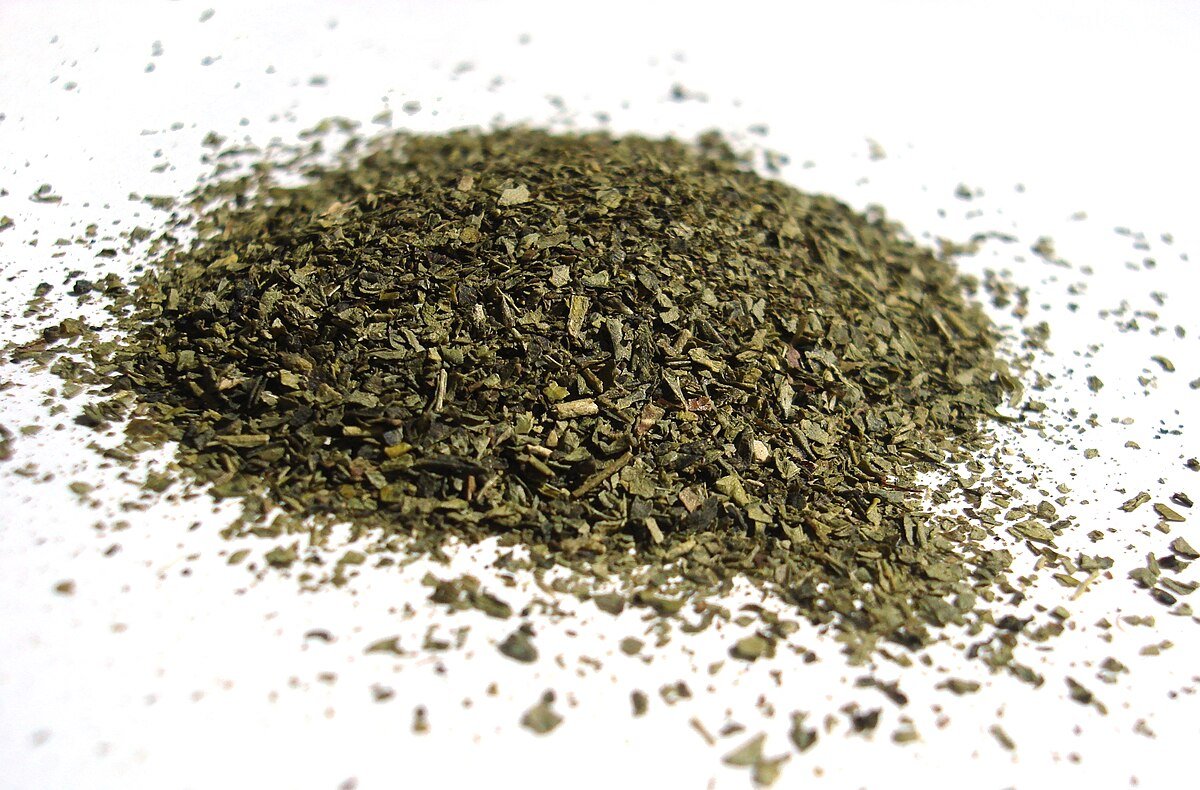Alive Blog
Green tea
Is it really that good?
Green tea, with its refreshing taste and potential health-promoting properties, has captivated tea enthusiasts for centuries. Originating from China, this ancient beverage has gained popularity worldwide. In this post, we will analyse the numerous health benefits associated with green tea, exploring the scientific evidence that supports its potential positive impact on overall well-being.
It is super rich in antioxidants
Green tea is renowned for its high concentration of antioxidants. These powerful compounds, known as catechins, play a significant role in protecting cells from damage caused by free radicals. Free radicals are unstable molecules that can lead to oxidative stress and contribute to the development of various diseases. The most abundant and potent catechin in green tea is epigallocatechin gallate (EGCG), which has been widely studied for its potential health benefits. EGCG and other catechins in green tea have been shown to neutralize free radicals, reducing oxidative damage and promoting cellular health. This antioxidant activity can have a profound impact on overall well-being and may contribute to the prevention of chronic diseases.
Promotes heart health
Regular consumption of green tea has been associated with a reduced risk of cardiovascular diseases. The antioxidants in green tea help improve blood flow by enhancing the function of the endothelial cells that line the blood vessels. This can lead to improved arterial health and reduced risk of heart disease. Additionally, green tea has been found to lower LDL cholesterol levels, often referred to as “bad” cholesterol. High levels of LDL cholesterol contribute to the formation of plaque in the arteries, increasing the risk of heart disease. Studies have shown that green tea consumption can help lower LDL cholesterol, promoting a healthier lipid profile.
Moreover, green tea has been associated with a modest decrease in blood pressure, which is another important factor in maintaining heart health. By promoting healthy blood flow and supporting cardiovascular function, green tea can be a valuable addition to a heart-healthy lifestyle.

Supports weight management
Green tea has long been recognized for its potential role in weight management. It contains compounds that can enhance metabolism and increase fat oxidation. Catechins, particularly EGCG, have been shown to aid in the breakdown of fat cells and increase the body’s energy expenditure.
Studies have indicated that green tea consumption may contribute to weight loss and help maintain a healthy body weight. However, it’s important to note that the effects of green tea on weight management are modest, and it should be combined with a balanced diet and regular physical activity for optimal results. Weight gain has a direct correlation to increased risk of developing Lower back pain, sciatica, osteoarthitis, diabetes type 2, etc. By reducing your body weight, you are in fact taking care of those precious ankles, knees, hips and spine. Do not take your body for granted!
Boosts brain function
The presence of caffeine in green tea provides a mild stimulant effect that can improve alertness and concentration. This can be beneficial for cognitive performance, particularly in terms of memory and attention.
In addition to caffeine, green tea contains an amino acid called L-theanine. L-theanine has unique properties that promote relaxation and reduce anxiety without causing drowsiness. When combined with caffeine, L-theanine can have a synergistic effect, enhancing cognitive function and promoting a state of focused calmness.
The combination of caffeine and L-theanine in green tea has been shown to improve brain function, including memory, attention, and overall cognitive performance. By incorporating green tea into your daily routine, you can give your brain a natural boost.
Potential cancer-fighting properties
The high concentration of antioxidants in green tea, particularly EGCG, has been the subject of research regarding its potential cancer-fighting properties. Numerous studies have suggested that the antioxidants in green tea may help inhibit the growth of cancer cells and reduce the risk of certain types of cancer, including breast, prostate, and colorectal cancer.
EGCG has been shown to interfere with various processes involved in cancer development, such as cell proliferation, angiogenesis (the formation of new blood vessels), and metastasis (the spread of cancer cells). While further research is needed to fully understand the mechanisms and potential benefits, green tea’s potential role in cancer prevention is promising.
Supports digestive health
Green tea has been traditionally used to aid digestion and promote gastrointestinal health. It may help improve gut health by promoting the growth of beneficial gut bacteria, such as Bifidobacterium and Lactobacillus, while reducing the presence of harmful bacteria.
The polyphenols found in green tea also have anti-inflammatory effects on the digestive system. Inflammatory bowel diseases, such as ulcerative colitis and Crohn’s disease, involve chronic inflammation in the gastrointestinal tract. Green tea’s anti-inflammatory properties may help alleviate symptoms and promote a healthier gut environment.
Additionally, green tea has been shown to have a calming effect on the digestive system, helping to reduce spasms and discomfort. By supporting digestive health, green tea can contribute to overall well-being.
Enhances skin health
The antioxidants in green tea can have a positive impact on skin health. They help protect the skin from oxidative stress, which is a major contributor to premature aging and skin damage. Green tea’s antioxidant properties may help reduce the signs of aging, such as wrinkles, fine lines, and sagging skin.

Moreover, green tea extracts are often used in skincare products for their potential anti-inflammatory and moisturizing effects. They can help soothe the skin, reduce redness and irritation, and improve overall skin tone and texture. By incorporating green tea into your skincare routine or using skincare products containing green tea extracts, you can harness its benefits for healthier, more radiant skin.
Immune function
Green tea contains catechins that possess antimicrobial properties, which can help inhibit the growth of harmful bacteria and viruses. By reducing the activity of these pathogens, green tea supports the body’s immune system and may reduce the risk of infections.
Furthermore, the antioxidants in green tea help protect the immune cells from oxidative damage, ensuring their optimal function. A robust immune system is essential for overall health and well-being, as it helps defend against a wide range of illnesses and infections.
Green tea is more than just a refreshing beverage. Its rich antioxidant content and potential health benefits make it a valuable addition to a healthy lifestyle. From its ability to protect cells from oxidative damage and promote heart health to its potential role in weight management, brain function, cancer prevention, digestive health, skin health, and immune support, green tea offers a multitude of health benefits.
Incorporating green tea into your daily routine can be as simple as enjoying a hot cup of brewed tea or exploring other delicious options like matcha or green tea-infused smoothies. However, it’s important to note that while green tea offers many potential health benefits, it is not a magical cure-all. It should be seen as part of an overall healthy lifestyle, which includes a balanced diet, regular exercise, and other health-promoting habits.
As with any dietary consideration, individual responses may vary. It’s always a good idea to consult with a healthcare professional if you have any specific health concerns or questions about incorporating green tea into your routine, especially if you have any pre-existing medical conditions or are taking medication.
So, why not embrace the healing powers of green tea and savor its numerous health benefits? Raise your cup and toast to a healthier, happier you!
Disclaimer: This blog post is for informational purposes only and should not be considered medical advice.
Dr. Edoardo Elisei DC
Alive Chiropractic LTD
alivechiropractic.co.uk
1C Crown Gate Square
POUNDBURY
07/07/2023
A collection of informative and engaging videos that offer visual insights into the world of chiropractic care. Visual content is a powerful tool for education and empowerment, allowing you to deepen your understanding of chiropractic principles, techniques, and the benefits of maintaining a healthy spine.

Chiropractic techniques
Chronic lower back pain is one of the most common musculoskeletal conditions causing disability and absence from work worldwide.

What is pain?
Sometimes, neck pain can be accompanied by radiating pain towards the shoulder blade or – in some cases – towards the arms.

How often should I see my chiropractor?
If you suffer from frequent headaches or migraines, chiropractic care can provide effective relief.






















